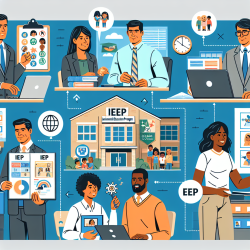Introduction
The COVID-19 pandemic has highlighted the vulnerabilities of urban informal settlements, often referred to as slums, which are prevalent in the Global South. These areas face severe challenges due to overcrowding, lack of basic amenities, and economic instability. The research article "Slum Health: Arresting COVID-19 and Improving Well-Being in Urban Informal Settlements" provides critical insights and recommendations that can be instrumental for practitioners, especially those involved in online therapy services like TinyEYE, to improve outcomes for children and families living in these environments.
Key Insights from the Research
The research emphasizes the importance of recognizing the unique challenges faced by residents of urban informal settlements. These challenges include:
- Lack of access to clean water, sanitation, and healthcare facilities.
- Economic vulnerability due to reliance on informal work sectors.
- Social and physical constraints that hinder effective disease prevention measures like social distancing.
Practitioners can leverage these insights to tailor their approaches, ensuring that interventions are culturally sensitive and contextually relevant.
Implementing Research Outcomes
Practitioners can enhance their skills and improve service delivery by adopting the following strategies based on the research findings:
- Community Engagement: Form and support community-led emergency planning committees to foster trust and collaboration in health interventions.
- Training and Deployment: Train community health workers to identify and address health issues, leveraging local knowledge and networks.
- Resource Allocation: Advocate for and facilitate access to essential resources such as clean water, sanitation, and food assistance to improve health outcomes.
Encouraging Further Research
The research underscores the need for continuous data collection and analysis to adapt interventions to the evolving needs of slum communities. Practitioners are encouraged to engage in participatory research, involving community members in the process to ensure that solutions are grounded in real-world experiences and challenges.
Conclusion
By integrating the insights from the research into practice, practitioners can play a pivotal role in improving the health and well-being of children and families in urban informal settlements. This approach not only addresses immediate needs but also contributes to long-term resilience and empowerment of these communities.
To read the original research paper, please follow this link: Slum Health: Arresting COVID-19 and Improving Well-Being in Urban Informal Settlements.










